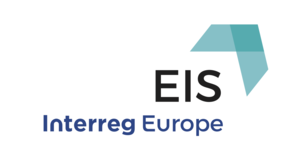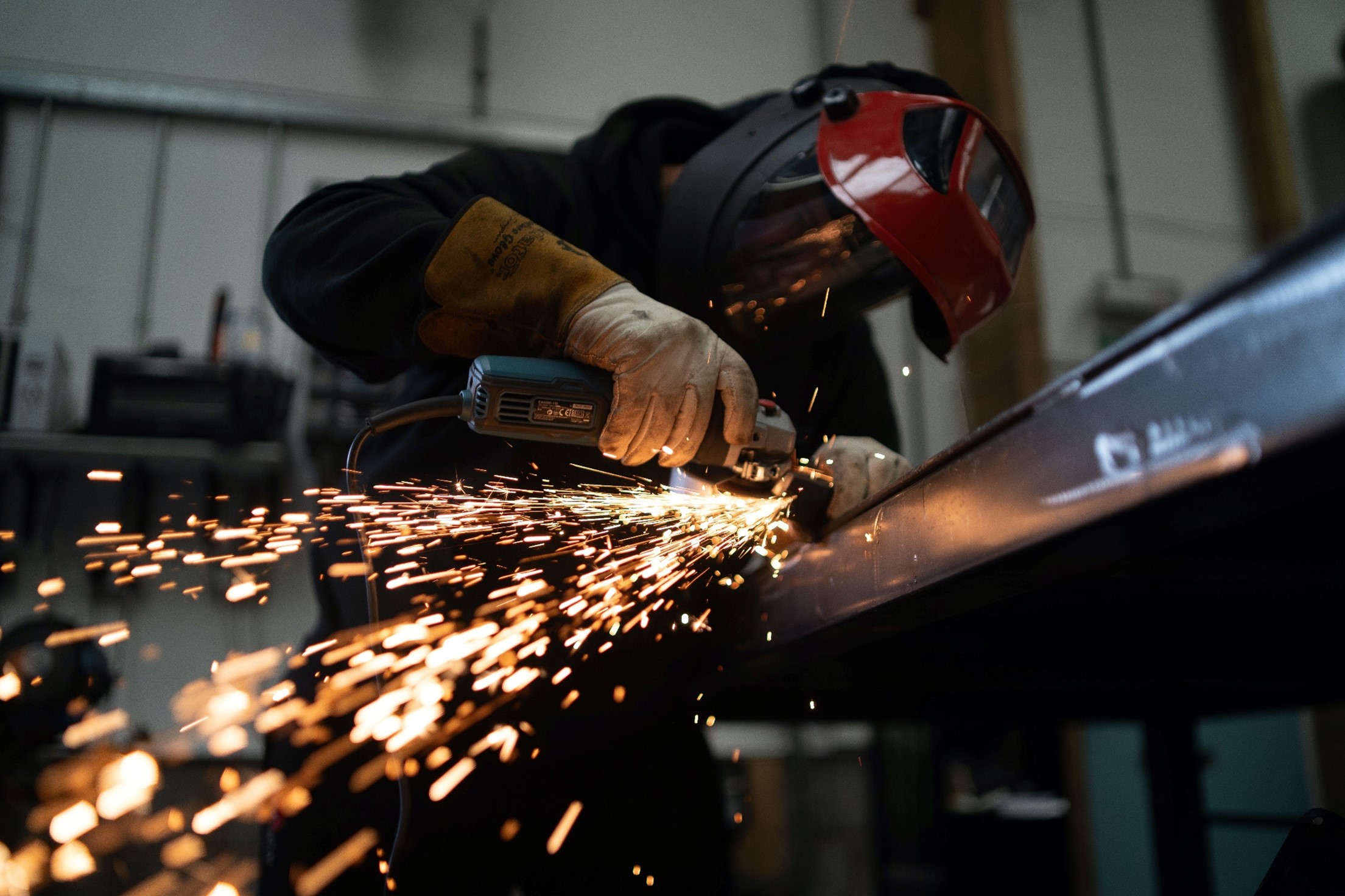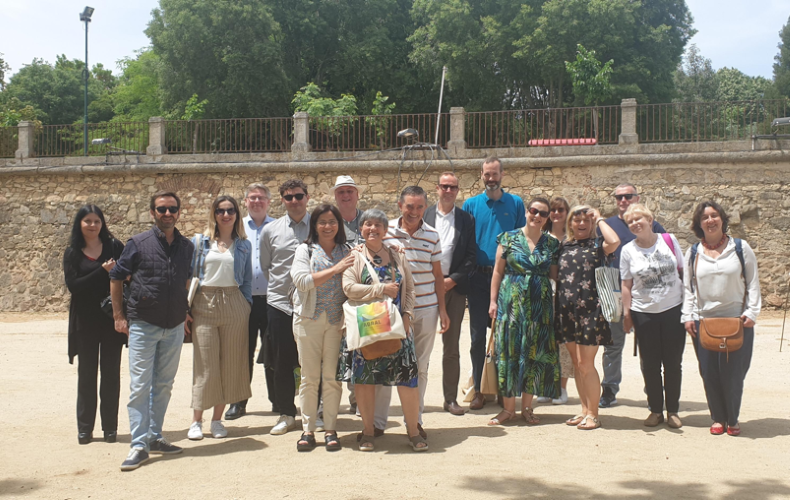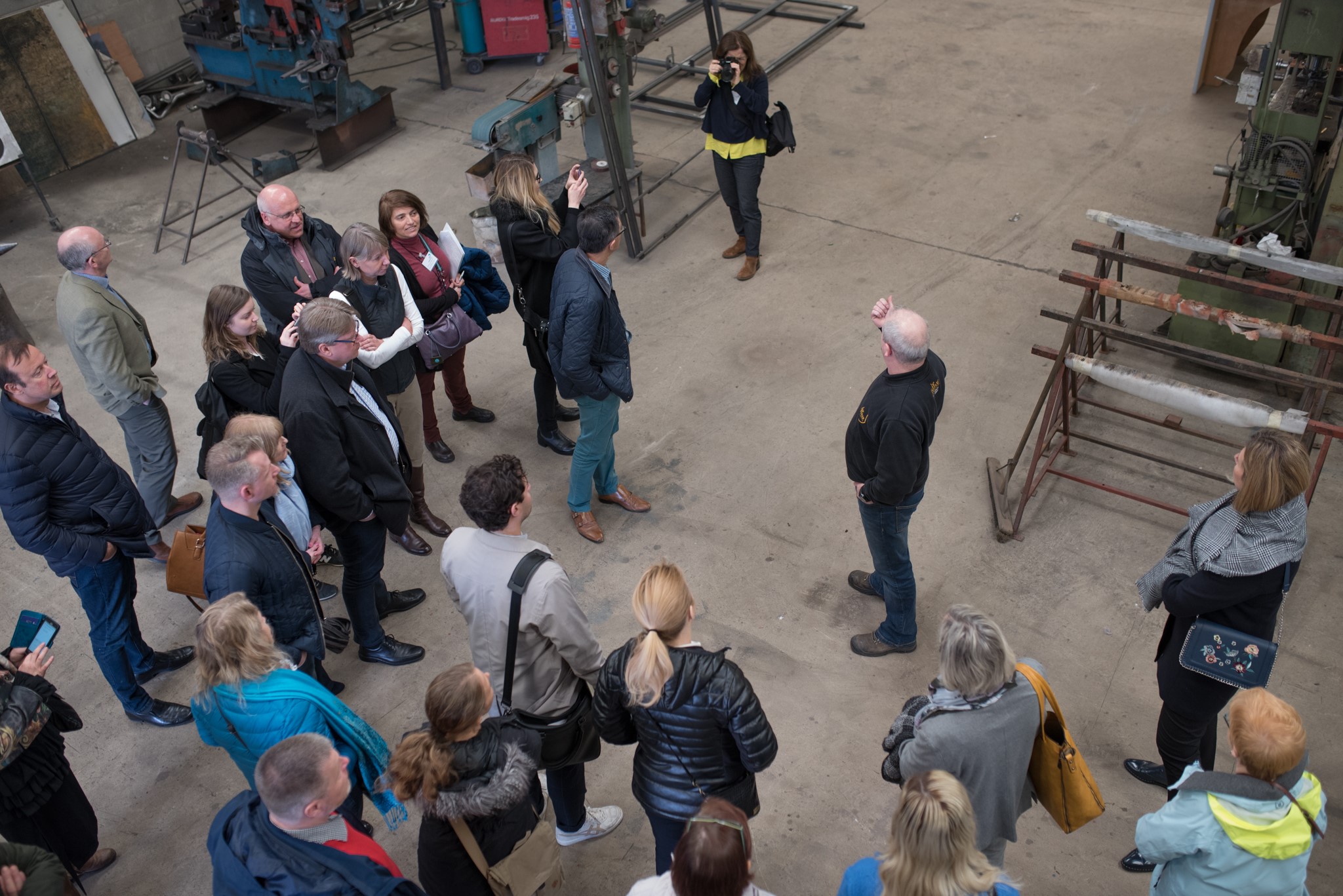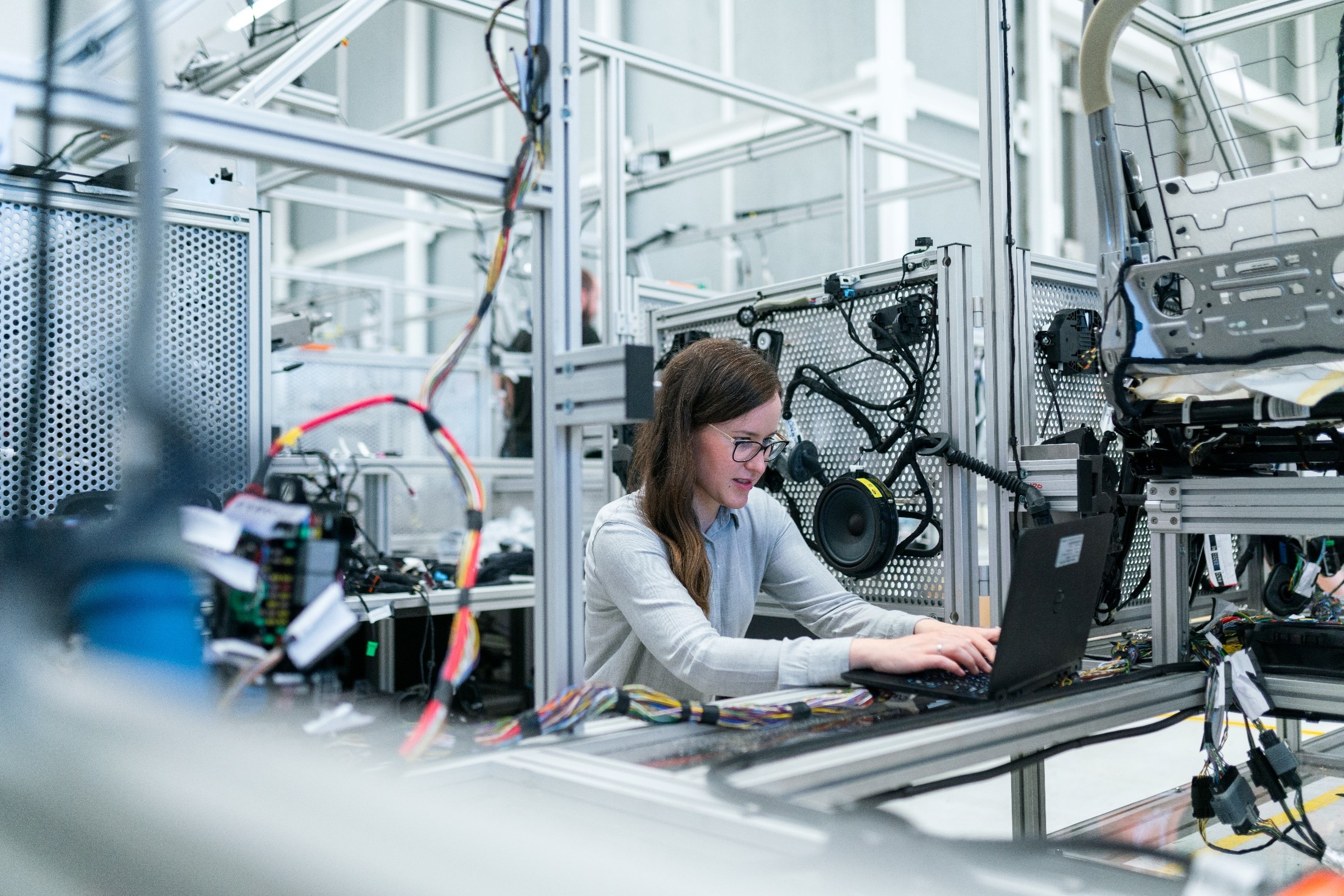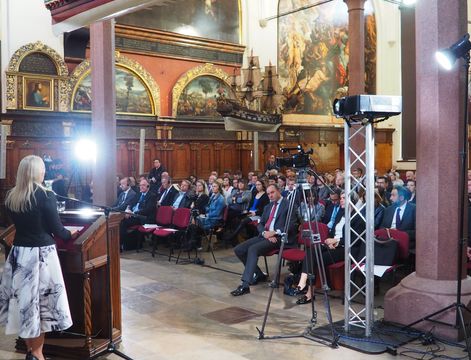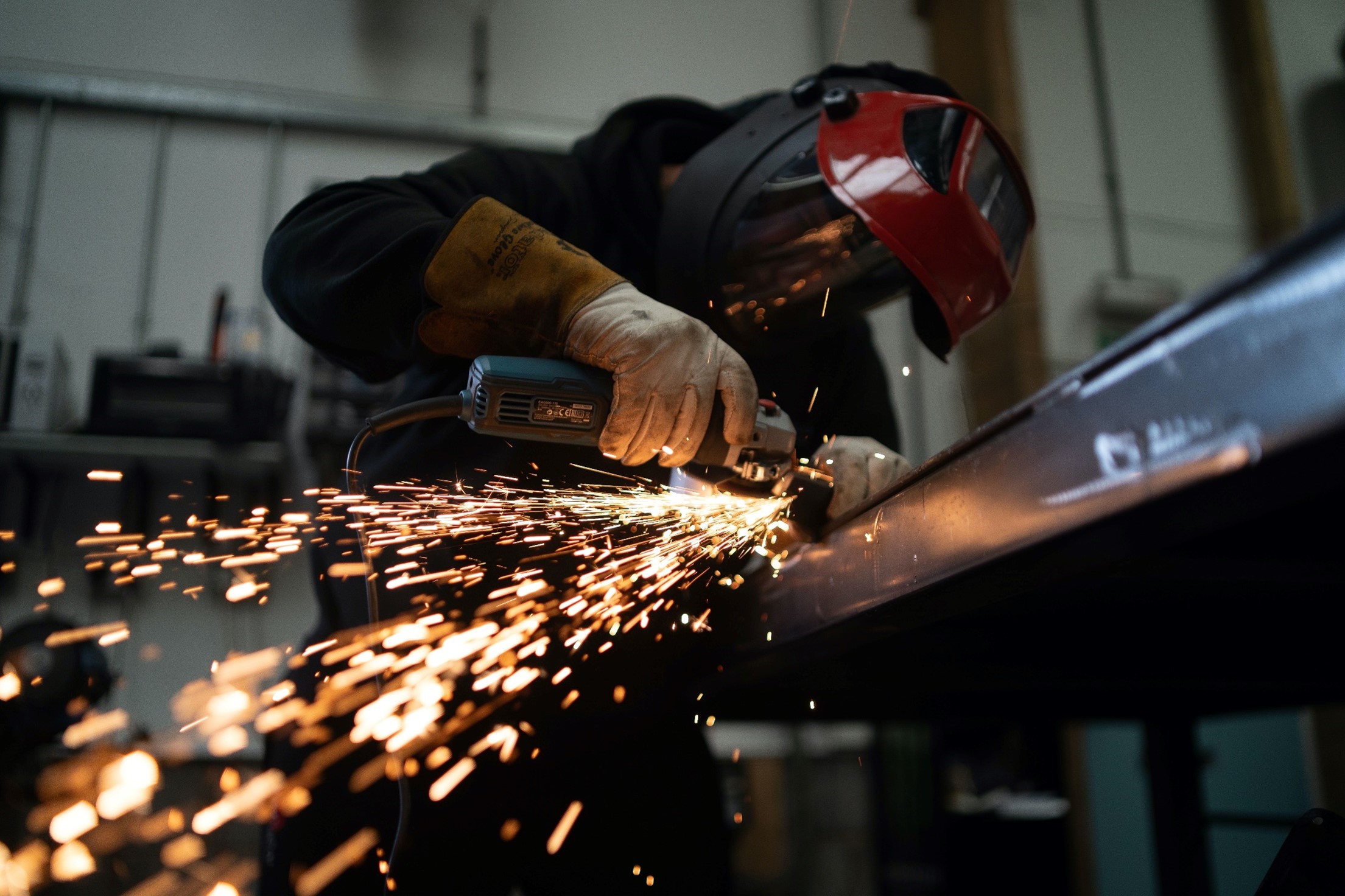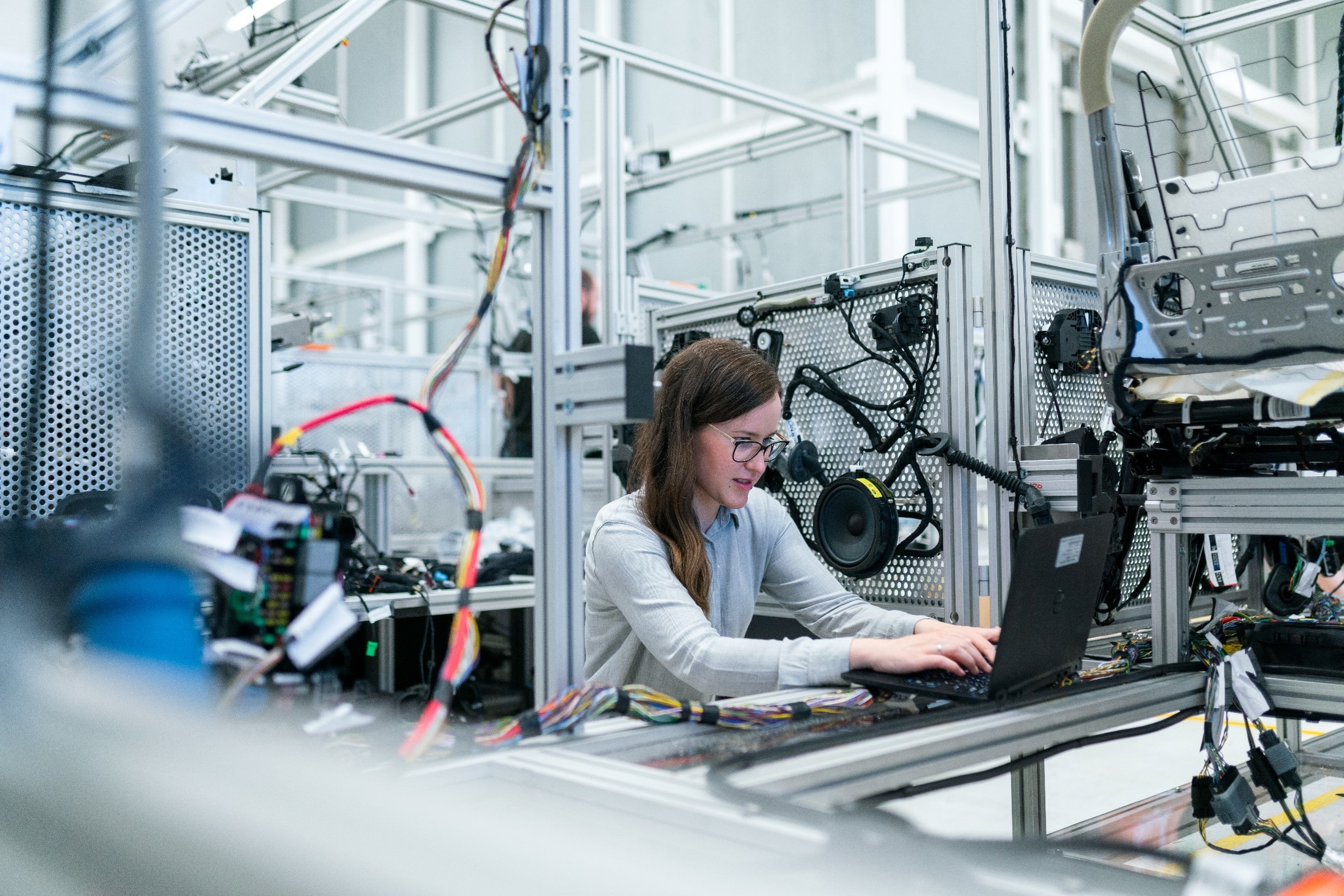 The EIS project partners gathered for the fifth Interregional Learning Workshop (ILW5) in April, this time in the city of Letterkenny in the Donegal region of Ireland. The gracious hosts of the workshop were the team from the Local Enterprise Office and a programme of discussion and the sharing of of challenges faced in this corner of Europe, was planned. The Action Plans (see other article: link) and the 6-step model were up for discussion as well as in-depth talks on specific programmes promoting SME internationalisation. The EIS project partners also visited two companies (see other article) and attended the “Beyond Local” conference hosted by the Local Enterprise Office which took place just after the EIS workshop. In this article, we will take a closer look at the Speed Dates that took place to share experiences of promoting SME interantionalisation and the Beyond Local Conference.
The EIS project partners gathered for the fifth Interregional Learning Workshop (ILW5) in April, this time in the city of Letterkenny in the Donegal region of Ireland. The gracious hosts of the workshop were the team from the Local Enterprise Office and a programme of discussion and the sharing of of challenges faced in this corner of Europe, was planned. The Action Plans (see other article: link) and the 6-step model were up for discussion as well as in-depth talks on specific programmes promoting SME internationalisation. The EIS project partners also visited two companies (see other article) and attended the “Beyond Local” conference hosted by the Local Enterprise Office which took place just after the EIS workshop. In this article, we will take a closer look at the Speed Dates that took place to share experiences of promoting SME interantionalisation and the Beyond Local Conference.
Radical expansion of the dating scene in Donegal
 The afternoon speed dates between the EIS partners must have had a significant impact on the overall number of dates happening that day in this corner of Ireland. The speed date session at the workshop allowed two or three partners to team up and talk about one specific programme, operating in a region. The advantage of the 25-minute ‘dates’ are that regions planning to incorporate elements of theprogrammes in their own Action Plans, had a chance to ask very specific questions on very practical matters, which is necessary if the experiences of one region is to be successfully transferred into another regional setting.
The afternoon speed dates between the EIS partners must have had a significant impact on the overall number of dates happening that day in this corner of Ireland. The speed date session at the workshop allowed two or three partners to team up and talk about one specific programme, operating in a region. The advantage of the 25-minute ‘dates’ are that regions planning to incorporate elements of theprogrammes in their own Action Plans, had a chance to ask very specific questions on very practical matters, which is necessary if the experiences of one region is to be successfully transferred into another regional setting.
The Voucher Scheme in Alentejo was the topic of one ‘speed date’. Partners from Hampshire,UK were interested in learning more about the practicalities around the scheme and the results that Alentejo had with running this scheme. As Rosa Onofre and Alexandra Corria from Alentejo explained: “The Voucher Scheme is simple and easy to apply and it is a good way to reach companies who do not export already. Companies apply for export assistance and get up to 10.000 EUR of which at least half should be spent on external consultants to help the specific company with setting up their exports.”
 Naturally, this promted questions from the Hampshire partners on how they make sure that the external consultants deliver quality advice and how the external consultants are selected. Rosa and Alexandra continued to explain how the programme is set up to accommodate these possible shortcomings. In Alentejo they have built a database of consultants who have to be approved and have to report back to the regional authority from whom they are payed directly.
Naturally, this promted questions from the Hampshire partners on how they make sure that the external consultants deliver quality advice and how the external consultants are selected. Rosa and Alexandra continued to explain how the programme is set up to accommodate these possible shortcomings. In Alentejo they have built a database of consultants who have to be approved and have to report back to the regional authority from whom they are payed directly.
Lastly, the Hampshire partners were interested in how big this programme is and how attractive it is, seen from the business side. Rosa and Alexandra reported that they have spent 1.5 million EUR over a 3-year period on vouchers, 156 companies have received support and around 446 companies have applied, meaning a success rate of applying companies of just about a third. “A success rate of around 33 percent is quite good. The interest from companies is huge, but since we are offering relatively small vouchers, we are able to accommodate many of them too” Rosa explaned.
Beyond Local Conference: SME internationalisation in a time of Brexit
Donegal Local Enterprise Office hosted a conference on internationalisation for the benefit of the regional SMEs. Following immediately after the EIS workshop, many partners from the EIS project participated in this conference titled “Beyond Local: Why going international makes sense”. Moreover, a partner from Emilia-Romagna and a stakeholder from Central Denmark featured in the conference programme and added an international perspective and, indeed, an EIS flavour to the Beyond Local conference.
The conference was held at the picturesque Lough Eske Castle and gave the 100 or so participants, with around 60 local companies being represented, a plethora of inspirational talks and great examples of the ups and downs in internationalisation from local companies. Since Donegal shares a major part of its border with Nothern Ireland, by far the largest proportion of their current exports are to the UK. With the current uncertaincies about Brexit, this is a time of worry for many exporting businesses in Donegal. Nevertheless, the message from the Local Enterprise Office and Michael Tunney, the head of the conference, was clear: “We are a part of a 500 million people single market in the EU. There are large unexploited opportunities, which we, for better or worse, can tap into.”
